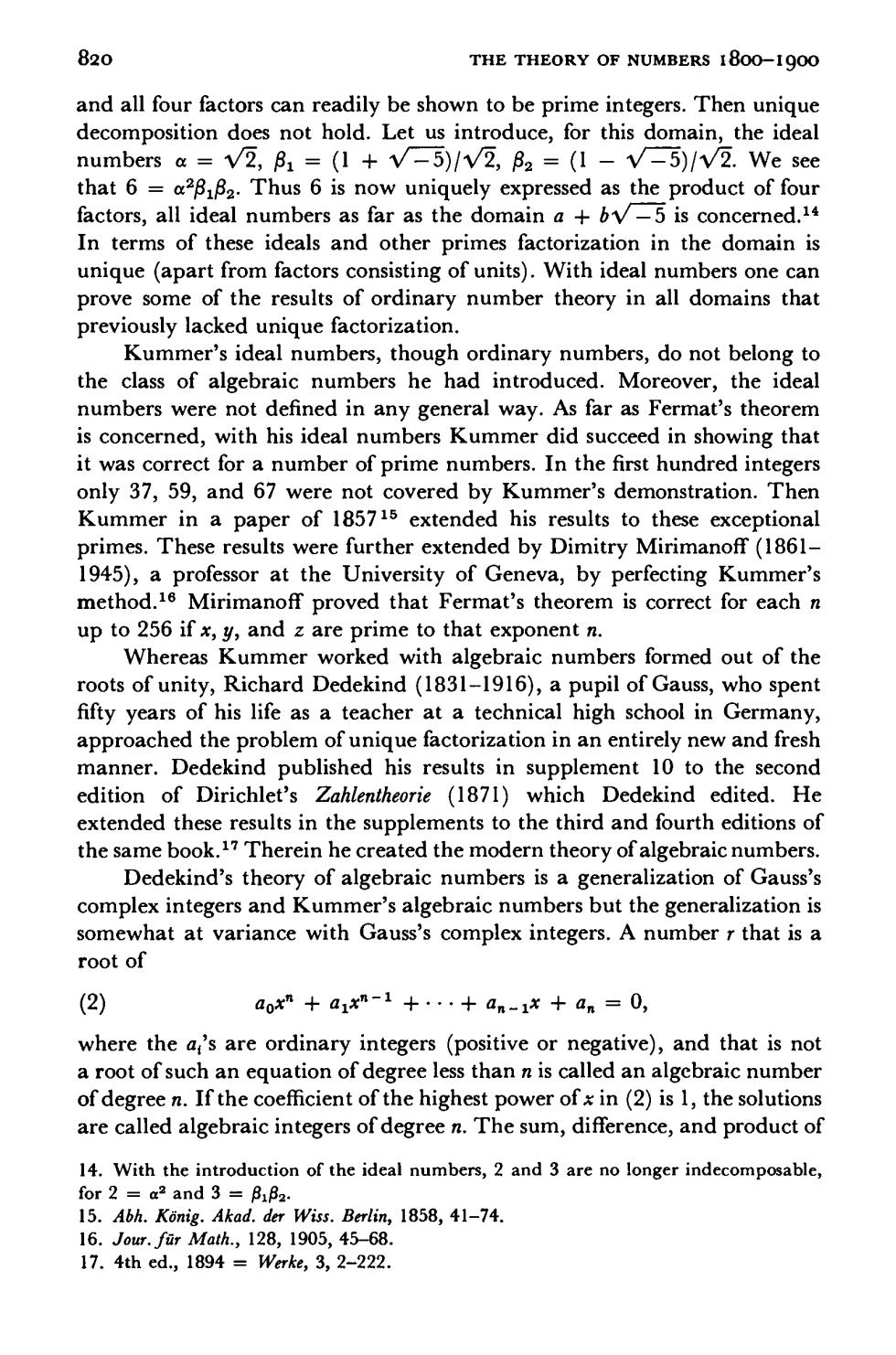正在加载图片...

820 THE THEORY OF NUMBERS 1800-1900 and all four factors can readily be shown to be prime integers.Then unique decomposition does not hold.Let us introduce,for this domain,the ideal numbers a =v2,B =(1+5)/V2,B2 =(1v5)/V2.We see that 6=a28182.Thus 6 is now uniquely expressed as the product of four factors,all ideal numbers as far as the domain a+b-5 is concerned.1 In terms of these ideals and other primes factorization in the domain is unique(apart from factors consisting of units).With ideal numbers one can prove some of the results of ordinary number theory in all domains that previously lacked unique factorization Kummer's ideal numbers,though ordinary numbers,do not belong to the class of algebraic numbers he had introduced.Moreover,the ideal numbers were not defined in any general way.As far as Fermat's theorem is concerned,with his ideal numbers Kummer did succeed in showing that it was correct for a number of prime numbers.In the first hundred integers only 37,59,and 67 were not covered by Kummer's demonstration.Then Kummer in a paper of 185715 extended his results to these exceptional primes.These results were further extended by Dimitry Mirimanoff(1861 1945),a professor at the University of Geneva,by perfecting Kummer's method.Mirimanoff proved that Fermat's theorem is correct for eachn up to256 if,and z are prime to that exponentn. Whereas Kummer worked with algebraic numbers formed out of the roots of unity, ,Richard Dedekind (1831-1916),a pupil of Gauss,who spent fifty years of his life as a teacher at a technical high school in Germany, approached the problem of unique factorization in an entirely new and fresh manner.Dedekind published his results in supplement 10 to the second edition of Dirichlet's Zahlentheorie (1871)which Dedekind edited.He extended these results in the supplements to the third and fourth editions of the same book.1'Therein he created the modern theory of algebraic numbers Dedekind's theory of algebraic numbers is a generalization of Gauss's complex integers and Kummer's algebraic numbers but the generalization is somewhat at variance with Gauss's complex integers.A number r that is a root of 3 aox"+a1x4-1+.+a-1x+an=0, where the ar's are ordinary integers (positive or negative),and that is not a root of such an equation of degree less than n is called an algebraic number of degree n.If the coefficient of the highest power of in(2)is 1,the solutions are called algebraic integers of degree n.The sum,difference,and product of 14.With the introduction of the ideal numbers,2 and 3 are no longer indecomposable, for 2 a3 and 3 B1B2. 15.Abh.Konig.Akad.der Wiss.Berlin,1858,41-74. 16.Jouw.far Math.,128,1905,4568. 17.4thcd,1894=Wrke,3,2-222